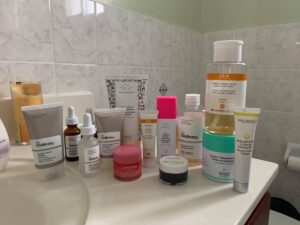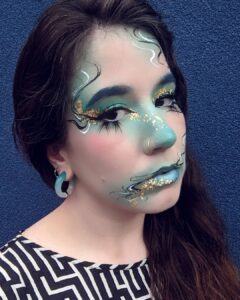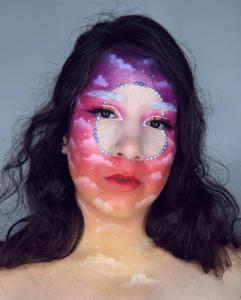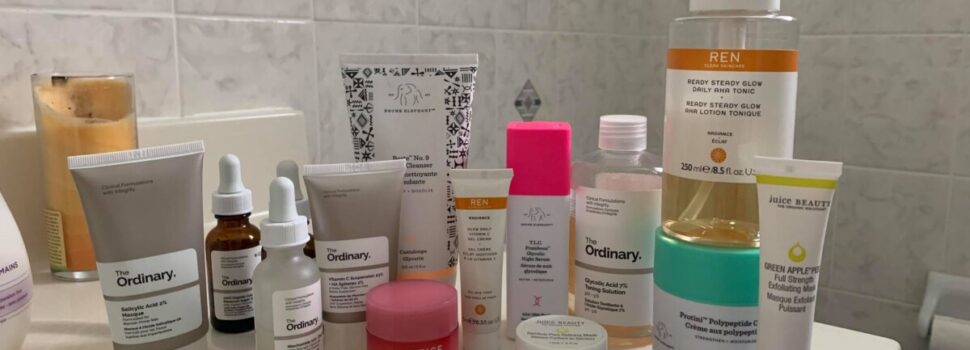
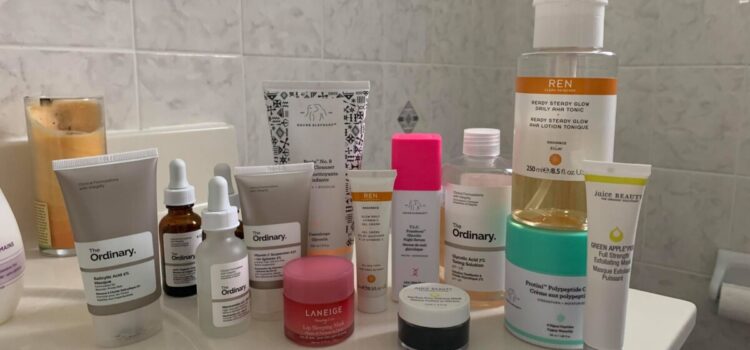
Skincare products proving more popular during COVID, but make-up isn’t forgotten
CultureLifestyleNews Mar 2, 2021 Thaïs Grandisoli
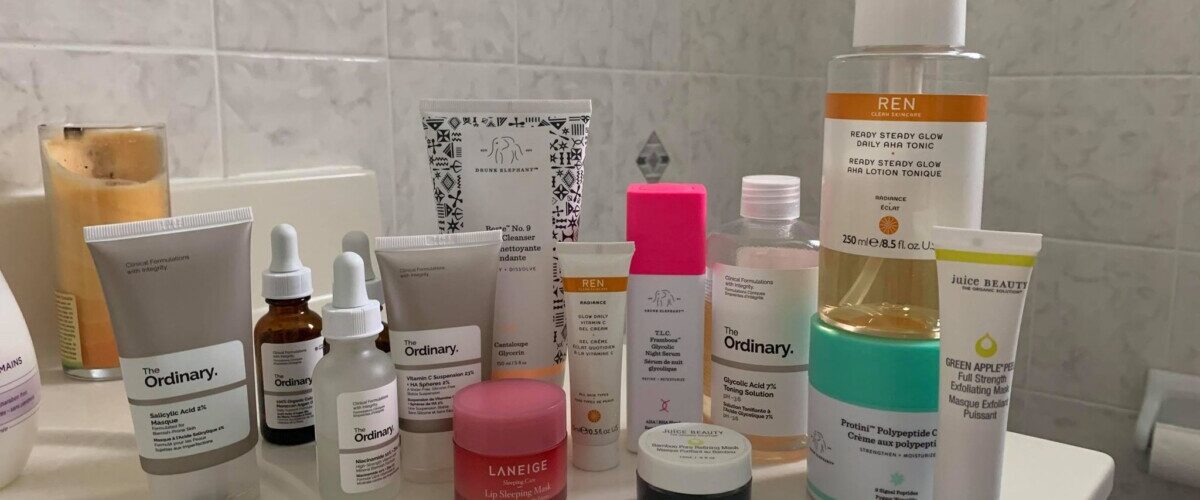
By Thaïs Grandisoli
Since wearing masks in public became the new norm, beauty enthusiasts have shifted their focus to skincare products, according to new market research. But industry watchers are wondering if the increased popularity of skincare products will endure, and replace people’s appreciation for make-up after COVID.
Beatriz Havoc, 25, a former regular-makeup user, is among those who decided to ditch most of her make-up routine for a glowy natural-skin look during the pandemic.
“I think when you create the habit of taking care of your skin, you feel better about yourself” says Havoc about switching her self-care routine.
The Toronto resident and former dental assistant was working in person last year. Havoc says wearing foundation or lipstick under her mask every day, for example, was more than just an annoyance — it was a waste of money.
“When you wear a mask, you’re kind of hiding half of your face, so why would I [apply products]? And make-up is really expensive, the ones that I like. So I feel like I was wasting products,” says Havoc.
Havoc isn’t alone in decreasing her use of make-up. According to market research firm NPD Group, 53 per cent of people surveyed in November 2020 said they changed their beauty product routine during COVID.
“What I don’t spend now on make-up, I spend on skincare products,” says Havoc.
Beauty proves resilient
If anyone thought a pandemic would negatively impact cosmetic sales, think again. The beauty industry has proved very resilient, and consumers are adapting their interests to our current reality.
In another study, NPD Group reported purchase-tracking data that revealed patterns of a shift in consumer interest from make-up to skin products every two years. Moisturizers, toners and face masks were already on the rise in 2019, but experts in the field predicted that make-up would make a comeback the following year. Because of COVID, that process has been delayed.
Lisa Alves, a managing producer, has been working from her home in Toronto since April of last year. She says maintaining her make-up habits at first was just an automatic reaction. After she started getting sudden acne breakouts in May, she decided to switch her focus to skincare.
“My skin feels cleaner, and I don’t break out as much,” Alves says, “I’m more comfortable leaving my house without make-up.”
Alves says her skincare routine got more complex, and she now uses more products. Before decreasing her make-up use, when it was time to remove it, Alves only used a couple of products.
“I didn’t use to do as many steps in my skincare routine, but they definitely take less time [now] than my make-up routine,” says Alves.
Make-up as a part of the routine
Masks were cited by market research analysts as the leading cause of the drastic drop in foundation and lipstick sales right after the first lockdowns last year. According to Nielsen, Canadian sales of lipstick brands were down by 45 percent in July.
“I bought a lip stain a while back, and I like to put a thin layer on sometimes, even under a mask,” says Alex Nursall, a Toronto casting director.
Nursall is among those who stuck with a make-up routine. She says she didn’t want to give up her daily grooming habits — personal hygiene, skincare, and make-up — just because her social and professional life went online.
Since she started working from home by mid-March last year, she says it’s all about routine to her. “I kind of need it. Without one, I find that I start to feel foggy and unmoored,” she says.
Nursall explains that her make-up products are already an essential part of her mornings, “I’ve always found that doing that signals to my brain the day has started, and I’m awake and ready to go.”
The casting director says her make-up habits stayed almost completed unchanged, except now she finds time to try on different things and improve her skills.
During COVID, make-up gets artistic
While some decreased their use of make-up products, others embraced it in new ways during the pandemic. Many people took on make-up as a hobby after starting to spend more time at home last year. A seemingly endless amount of new YouTube tutorials and Instagram feeds popped up online last year, as a lot of people had the extra time to produce and consume more content related to make-up.
“I’m a big fan of skincare, […] I think that [it’s important] especially for applying make-up on a somewhat regular basis. You really want to make sure you’re taking good care of your skin,” says Katie Addison, an insurance claims analyst. She has been working from home since May of 2020.
Addison says her increased concern for taking care of her skin stems a new experience — she has started applying make-up more often, and for unique reasons.
“One of my friends messaged me asking if I wanted to do a live stream with her, […] and we ended up deciding we would choose a look for the other,” she explains.
The make-up look Addison’s friend picked for her was bright and colourful. It pictured pastel-coloured clouds over her cheeks and a bright half-moon in between her eyes, “It was my first time doing a full-face artistic make-up, and it just snowballed from there.”
Addison now has plans to start a YouTube channel. She has already been live-streaming the creation of her artistic make-up looks on multiple social media platforms.
Looking ahead
In November, Cosmetic Executive Women (CEW) held its 26th Annual Beauty Awards and Larissa Jensen, NPD Group’s VP, spoke about their industry predictions.
Jensen said she noticed the category shift to skincare, especially after the pandemic, but she believes make-up will make a comeback soon. “There was a lot of growth seen in online shopping. This will probably remain and continue,” Jensen said.
According to a McKinsey report on the impact of COVID-19 on the beauty industry, over 85 per cent of make-up sales were made in person before the pandemic. Now more people are flocking to online stores to shop for their cosmetics.
Beatriz Havoc is out of step with that majority, “I’m not the person who enjoys going to the store just cause I want to see it. I just usually go [to an online store] when I want to buy something, and I buy it. I go by recommendations,” she says.
Havoc believes the quality of the website makes all the difference. She says, “when they have algorithms that help the site show you what you might like, […] it’s so helpful because I don’t want to browse for too long either.”
Even though her daily routine has changed a lot and her make-up use decreased after COVID, Havoc isn’t sure about a return to the status quo. “I’m not sure if I would go back the same way, because I really like the way my skin is looking now,” she says.

